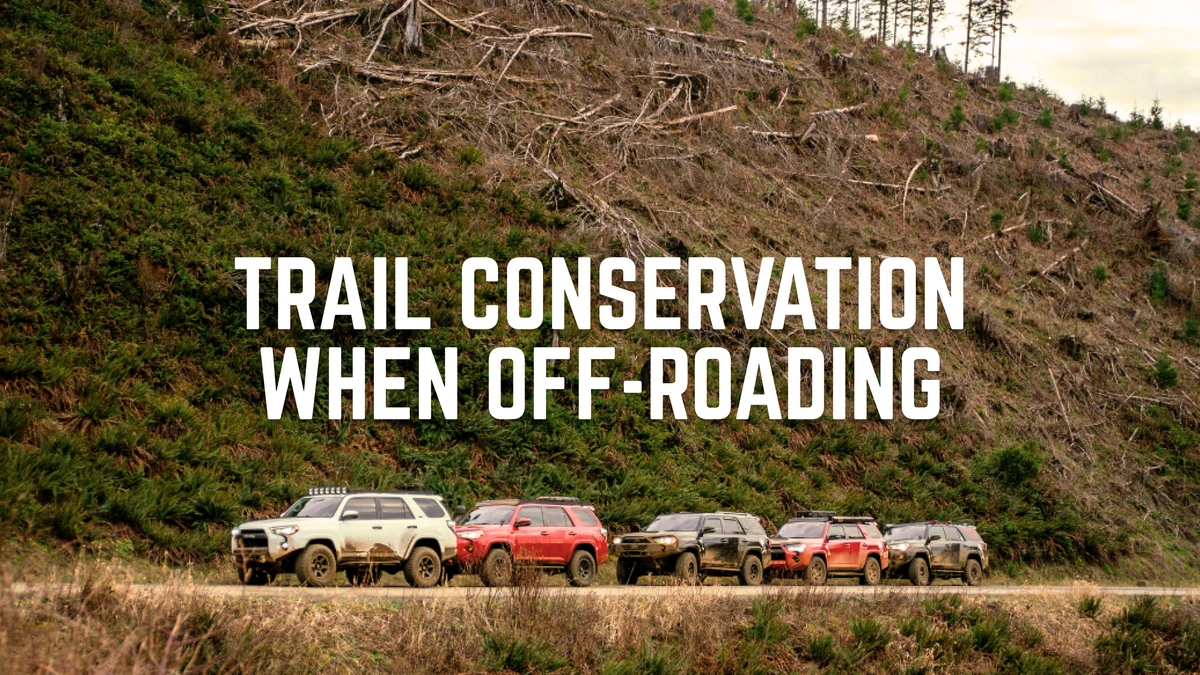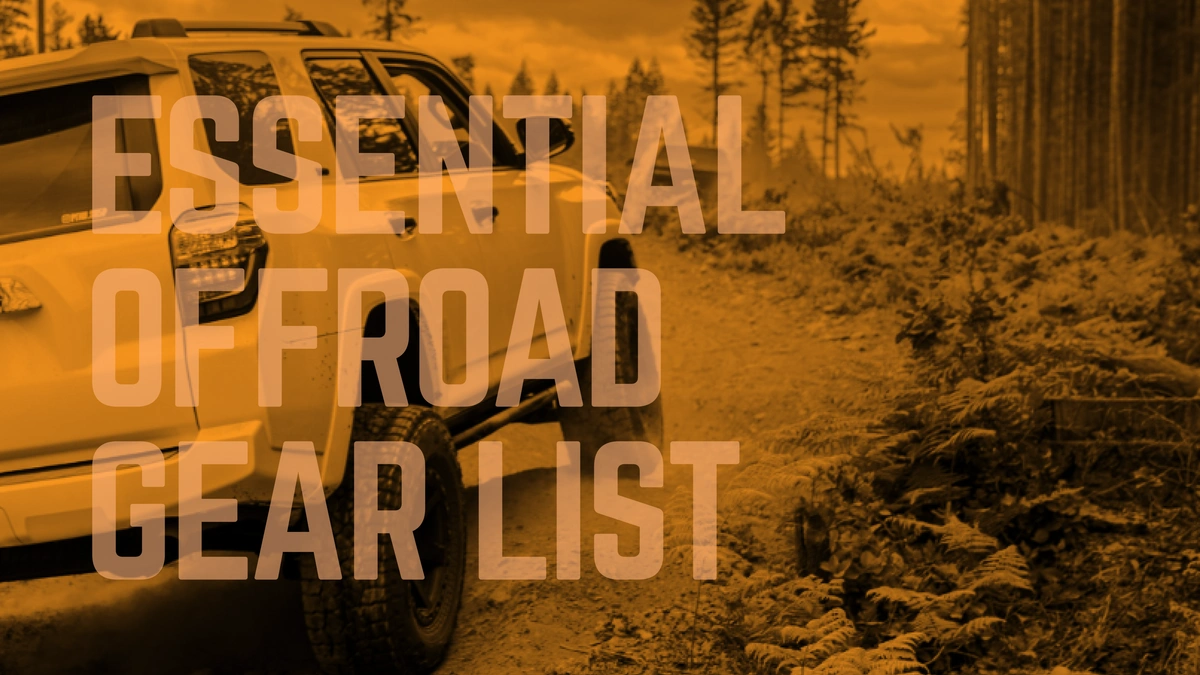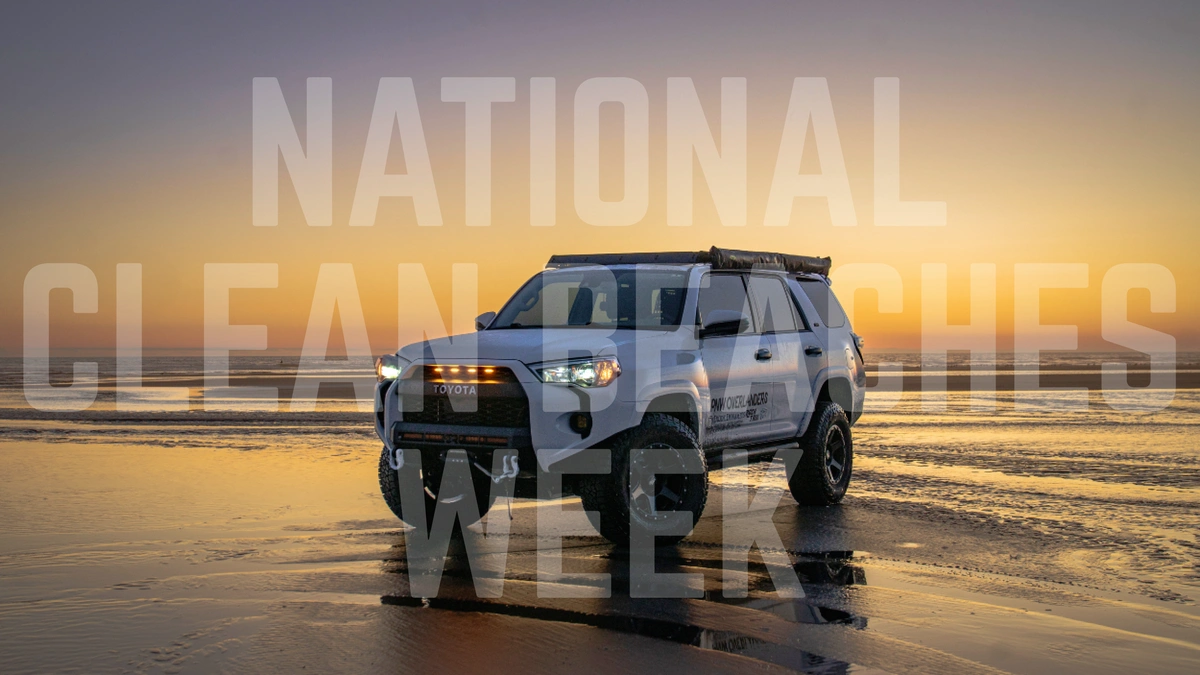
Trail Conservation When Off-Roading: How You Can Do Your Part
The off-road community has seen significant growth in recent years as more people have discovered the excitement of exploring the outdoors. This surge in popularity has brought many positive changes but has also introduced some challenges, especially concerning the impact on trails.
While having fun and making lasting memories out on the trails is important, it's equally crucial to ensure these paths remain accessible and healthy for years to come. By adopting responsible practices, we can all contribute to preserving the areas we love to explore. Here are a few ways you can do your part to conserve the trails around you.
What Does Trail Conservation Mean to Us
If you were unaware, off-roading can significantly impact the environment if not done responsibly. One major issue is erosion. If you’re driving recklessly, it can cause soil displacement, which damages the trail and the surrounding areas. This typically creates ruts, damages any present root systems, and accelerates soil erosion.
Additionally, off-roading can disturb wildlife habitats, causing stress and displacing animals. Vehicles can also crush plants, resulting in the loss of plant life and biodiversity. And sometimes, if you’re on a trail near bodies of water, it can contribute to sedimentation and pollution, negatively affecting water quality. This can also happen when you’re crossing larger bodies of water.
I don’t want anyone to think that off-roading is bad for the environment because it’s not, but it can be if you’re being reckless.
And that is where trail conservation comes in. Trail conservation involves various practices and measures to ensure the trails remain usable for the long haul. This means keeping trails in good condition to minimize effects on the areas you are exploring.
Our goal with the Trails Off-Road app is to enable you to explore your favorite areas while keeping them safe and drivable for years. We strive to provide various maps to help you plan your next adventure, but we aim to ensure that the places you explore are safe for you and the entire ecosystem.
The Impact of Trail Closures
Many people within the off-road community aren’t even aware that hundreds of miles of land are closed each year due to human negligence.
I’m sure many of you have heard about the proposed trail closures in Moab, Utah, over the last few years. For those unaware of the decade-long battle between the Southern Utah Wilderness Alliance (SUWA) and the Bureau of Land Management, the SUWA proposed the closure of hundreds of acres of land in Moab, including many popular trails. Their argument stems from the BLM improperly managing public access to federal lands in Utah, including those hundreds of acres in Moab.
The rationale behind these closures includes concerns about environmental degradation and preserving natural and cultural resources. Poor litter control, destruction of cultural sites, graffiti, and broken vehicle parts were all cited as significant issues. Excessive off-trail driving has also caused extensive wear and tear on sensitive habitats.
The BLM did open a public comment period that closed in September 2023, allowing everyone to express their views on the proposed closures. Engaging with these public comment periods is crucial, as it provides a platform for the off-roading community to voice their concerns and propose alternative solutions.
Unfortunately, after many people voiced their concerns, the BLM ultimately decided to close 317 miles of OHV routes and an additional 18 miles of trails meant for smaller vehicles. This meant that ⅓ of Moab's usable trails were permanently closed off.
The closure of Moab trails brings attention to a bigger problem seen in many places across the country. As off-roading gains popularity, its impact on the environment increases, too. More trail traffic has led to significant wear and tear, prompting lawmakers to enforce stricter regulations where many solutions result in the permanent closure of the trails.
Instead of just closing trails, the key is to promote responsible off-roading within the community.
Education and awareness are crucial in trail conservation. Sharing knowledge about preserving trails and being responsible for the trails is important. It helps everyone understand the steps they can take to protect trails, building a larger community dedicated to keeping them safe and well-maintained.
The proposed trail closures in Moab are a critical reminder that conserving off-road trails is a group effort that requires the participation and responsibility of everyone involved. We can preserve our trails' natural beauty and integrity while enjoying the adventure.
Ways You Can Contribute On the Trails
There are so many ways that the off-road community can contribute to doing their part!
First, it is absolutely essential to stay on designated trails. Using marked and designated trails reduces the risk of damaging sensitive areas and minimizes environmental impact. It’s a good rule of thumb always to know all the rules or requirements of the areas you plan on exploring.
Disobeying the rules and creating new paths can increase erosion and habitat destruction, making the area less sustainable for future use.
But before you even head out on the trail, consider obtaining copies of applicable maps, like a Forest Service Motor Vehicle Use Map, and use mapping apps like Gaia GPS. You can also download the Trails Off-Road app and utilize our Scout Maps and Trail Guides, so you won’t have issues finding safe trails to explore. These will also report any closures that are happening.
Another crucial step is Following the Leave No Trace principles. Carry out all trash, minimize the impact by not disturbing nature and wildlife, and dispose of waste properly by following local waste disposal requirements or packing everything out to avoid any issues.
Fire safety is another crucial aspect of the Leave No Trace principles. It is essential to ensure your campfire is completely extinguished before leaving. Many wildfires in recent years have been caused by human negligence, especially during the warmer months. If you are unsure how to manage a fire properly, do your part and educate yourself on the topic before heading out. And it’s always best to use an already established campfire.
One thing that gets left out but is just as important as other steps is ensuring that you respect any seasonal closures and restrictions. Not only is this a concern for the trails, but it could also be a safety concern for those who venture out.
Trails may be closed at any time to protect wildlife during sensitive periods, such as breeding seasons, or to allow trails to recover from overuse. There are also many seasonal closures that happen throughout the states, and driving on those trails when they are not passable can cause a lot of harm to the trail and the surrounding areas. Adhering to these closures helps ensure the long-term sustainability of the trail system.
Ways You Can Contribute Off the Trails
You can play a crucial role in promoting responsible off-roading by educating fellow enthusiasts about trail conservation and responsible practices. Sharing this knowledge helps spread awareness of the positive steps everyone can take to protect trails, building a larger community dedicated to keeping trails safe and well-preserved.
If you’re unsure where to start, many resources, often specific to your state, are available to help you learn more about trail conservation. Take the time to explore these resources and discover how you can contribute to your local community and area.
Being a responsible off-roader involves educating yourself about protecting trails and understanding the land you visit, including the terrain, wildlife, and historical or cultural sites. Check for any endangered species or private properties you must avoid, and be aware of the weather forecast and trail conditions.
Joining local off-road groups is another excellent way to get involved. These groups often organize trail runs and teach valuable trail-use skills. Many also host cleanup events, providing a great opportunity for those looking to get even more involved.
Familiarize yourself with your vehicle, including its controls and how to engage 4WD or AWD if your vehicle has them. Learn to adjust tire pressure for different terrains to optimize traction. Always come prepared with the proper equipment, ensuring your vehicle is equipped with appropriate modifications and gear and regularly maintained to prevent oil leaks and other environmental hazards. Always carry a set of tools in case anything goes wrong.
Despite careful planning, getting stuck is always a possibility. Learn recovery techniques with the gear you may have, like winches or recovery boards. Mastering these skills can turn potential obstacles into manageable challenges.
Don’t rush the learning process; every bit of knowledge you can absorb will only positively help the great effort to protect our trails.
---
Remember, exploring public lands is a privilege we all share. One careless act can lead to closures that affect everyone, so being respectful and responsible is essential.
The trails we enjoy today were created through the dedication and effort of previous off-roaders. Individuals committed to supporting the sport built, maintained and protected them. We owe them one simple act of gratitude to honor their hard work by doing our part for future generations to enjoy these areas like we have.





